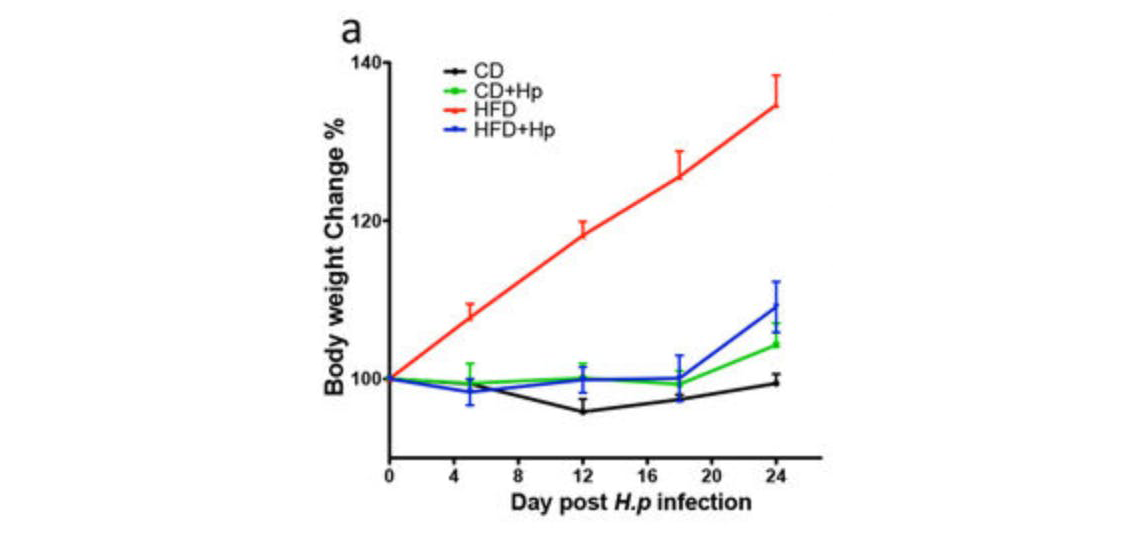A growing body of research is suggesting that parasitic worms could in fact have a positive effect on our immune system. A new study is bolstering that hypothesis, finding in animal experiments that a certain type of helminth infection can help lower obesity rates, even when fed a high-fat diet.
Although we have a huge amount still to learn, it is slowly becoming more generally accepted that our gut bacteria population has a vital symbiotic effect on our general health, potentially affecting everything from our immune response to our psychological well-being. But what about the symbiotic relationship we potentially have with larger parasitic organisms?
Over recent years, some scientists have raised the interesting hypothesis of a correlation between the increasing incidence of auto-immune and inflammatory disorders in Western society, and the decrease in parasitic worm, or helminth, infections.
For thousands of years, helminths evolved strategies to help them exist inside human beings and we are now uncovering insights into how they avoid triggering our immune systems to attack. Research has found that these worms have the ability to modulate the immune system of a human host by secreting certain molecules that have a type of anti-inflammatory function.
Several compelling studies have been published over the last decade demonstrating how intentional helminth infection in humans can alleviate intestinal inflammation and control allergic disorders including asthma. New research from Massachusetts General Hospital and Harvard University set out to investigate whether helminth infections could have any connection to obesity, since obesity is known to be related to chronic low-grade inflammation in adipose tissues.
The research used a specific type of intestinal roundworm, naturally found in rodents, called Heligmosomoides polygyrus. For over two months, mice were fed either a high-fat diet or a control diet, before they were infected with the parasitic worm. The results were incredibly clear. Following infection with the parasite, the mice being fed the high-fat diet (blue time in graph below) almost immediately began to gain less weight than those uninfected mice fed the same diet (red line). Perhaps most intriguingly the mice being fed the high-fat diet that were infected with the parasite displayed similar weight gain trends to those mice on the control diet (black line).

The researchers then worked to understand the mechanism behind these results, finding that the parasites actively changed the genetic profile of the infected mice. The infected mice were shown to have altered expression of several key metabolic genes, as well as displaying a higher volume of anti-inflammatory immune cells when compared to non-infected mice.
An intriguing final stage in the research revealed this anti-inflammatory effect could be transplanted from one mouse to another. The researchers took immune cells from mice infected with the parasite and transplanted them into mice that were not infected but still being fed a high-fat diet. The mice with the transplanted immune cells subsequently demonstrated a significant reduction in high-fat diet-induced obesity, suggesting the immune-modulating action of the parasites is transferable.
It's unclear whether this research could translate into a clinical therapy as human parasite trials for other conditions have only proved intermittently successful. A 2015 overview on human helminth therapy from scientist Helena Helmby suggests that while it is becoming overwhelmingly clear these parasitic infections can strongly modify immune responses, there are still a large number of questions that need to be answered, "such as the appropriateness of the species of helminths used, whether infections should be systemic or localized, whether the dose should be light or heavy, of acute or chronic duration, and the role of host genetics."
Perhaps the most plausible outcome from this growing body of research is the exciting new insight into novel anti-inflammatory compounds that could direct researchers towards new drugs to help modulate a variety of auto-immune disorders. These remarkable organisms have spent thousands of years developing unique ways to suppress the human immune system and there is plenty we could learn from them.
The new research was published in the journal Scientific Reports.





